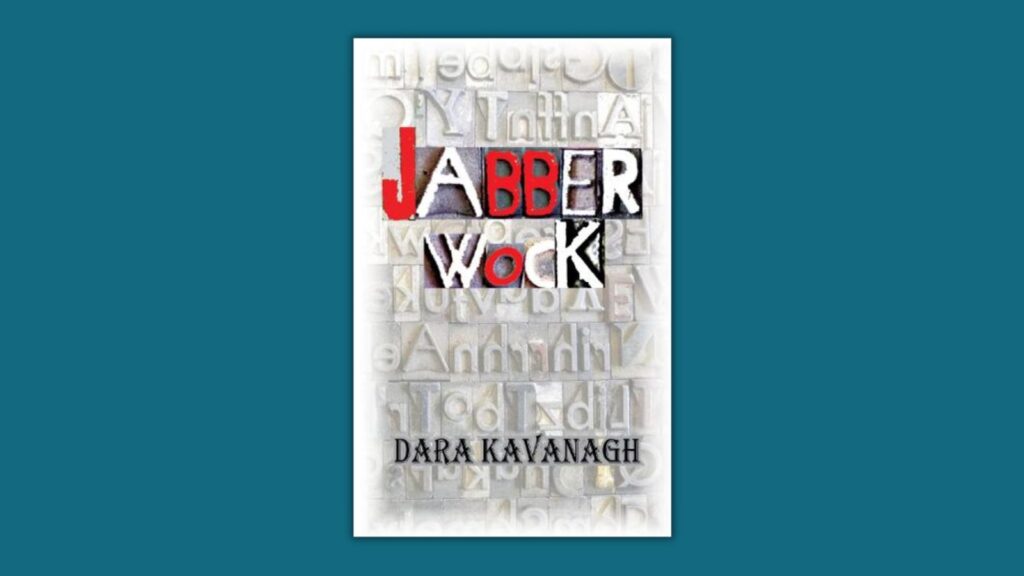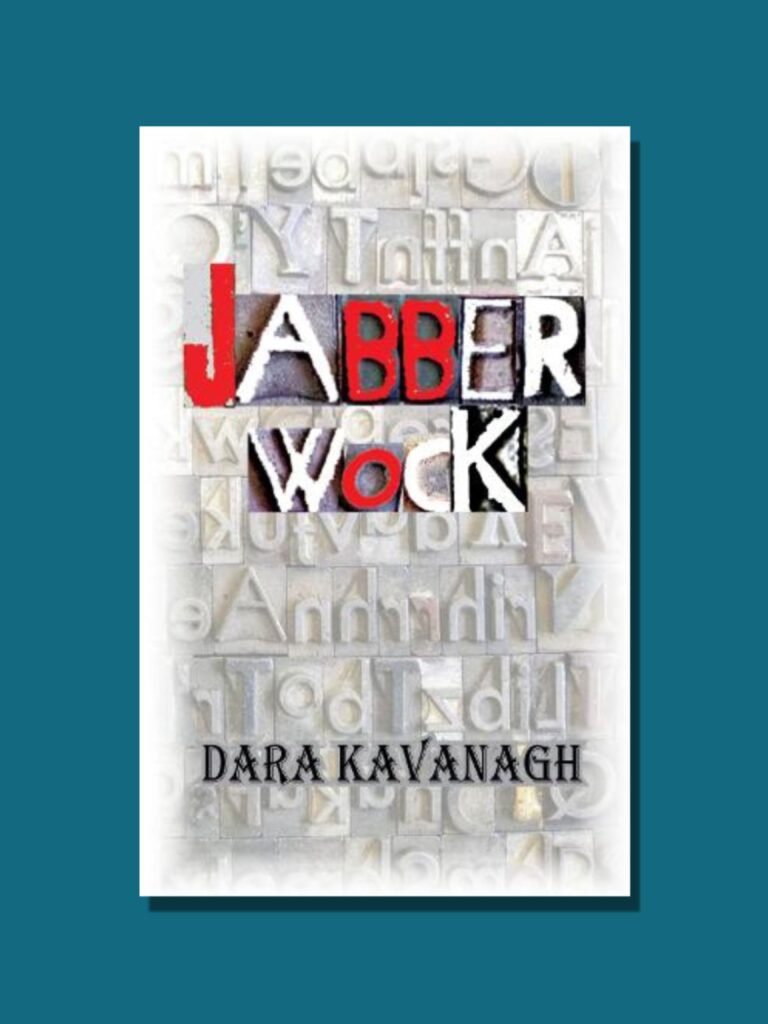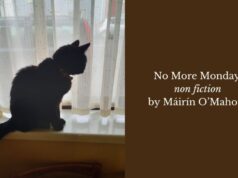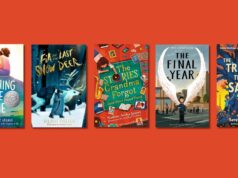
Jabberwock|Dara Kavanagh|Dedalus Books
A joyful, anarchic merry-go-round with mischief and mayhem—Kevin Curren on Jabberwock by Dara Kavanagh
by Kevin Curren
In a novel as playful, irreverent, slippery and by its very design, evasive and mischievous as Jabberwock, it’s best to start with the concrete, undeniable facts:
Jabberwock is Dara Kavanagh’s second novel to be published by Dedalus Books. His first, Prague 1938, was published in 2021.
Jabberwock is David Butler’s fifth novel, (his second to be published by Dedalus Books) the other novels being The Last European, The Judas Kiss and City of Dis.
Jabberwock is David Butler’s (aka Dara Kavanagh’s) tenth book in total, when taking into account poetry and short story collections.
Many names, many books, many words, many ideas. A life in writing and a flair for language.
So far, so straightforward.
Anarchic merry-go-round
Writers and characters all become one in this encyclopedic, dense, joyful and anarchic merry-go-round of a distorted reality, realist (come surrealist) novel of letters.
From page one, this is a novel where the surreal and real melt into one rollercoaster of language and literary cat and mouse.
The Protagonist: Hackett, Ignatius, a fictional, down on his luck journalist who is behind on his rent and being harangued by his landlord.
It’s with Hackett the story travels, swirling and cavorting round a labyrinth of minor adventures and major syntactical incidents. It’s to the Palace Bar, where our hero, Hackett saunters. There he meets RM Smyllie, a fictionalized version of a real Irish Times editor. How do we know he’s real? Because the footnotes (to be found in small print on a large number of pages) say so. But can the footnotes be trusted? That’s the fun of it. It’s Smyllie who sends Hackett to England, on his adventure to track down and discover…(see plot).
From page one, this is a novel where the surreal and real melt into one rollercoaster of language and literary cat and mouse
The supporting cast: A motley crew of characters flash and swivel like carnival waltzers through Hackett’s life and this wild escapade. There’s Rooney, and Quinn, or Q. And the enigmatic cypher Ж. Are they who they seem? Who knows? There’s O’Brien, the Director of the Royal Academy of Letters, whose speech is reported on the page in a phonetic Ulster accent, and then there’s Chief Inspector Quibble of the Semantics Branch of the CID who is tailing Hackett on his jaunts and investigations to discover if…(see plot).
The setting: Dublin City in the 1930s. Our dear Hibernian metropolis is brought vividly to life as we follow Hackett through its streets. He visits pubs and the National Library – to chat with the Chief Librarian (not the one in Ulysses – the next best we’re told) and then the story moves to London with its reading rooms, marble halls and oak tables. Trains, carriages and boats. France and Germany all feature too.
And finally, the plot.
The Plot: Hackett is in search of republicans who are trying to bring down the British Empire from within by spreading a counterfeit language. He’s on the trail of words that exist like physical artefacts, words that are being bought and sold on the black market. He’s looking into lexical crimes, verbal outrages, linguistic terrorism and ‘systematic semiotic decentering.’
But that’s only the half of it.
The real plot, as you’ve probably guessed, concerns language. And the games played with language. The page, the fonts, the chapters, the story, everything is up for grabs. Especially, though, the language.
And this is where Jabberwock ignites and sparkles.
Language
Butler (or Kavanagh) has said this book has taken twenty years to find its way to publication. There’s no denying the words, sentences, paragraphs, pages, footnotes, chapters and sections all hold the weight of those twenty years. This book couldn’t have been written in a hurry. It holds too much, it takes on a form that could only have been created over decades of writing, reading and learning. The words, in a strange, ironic twist, feel weighty, and sculpted into a solid ‘thing’.
You can almost sense our narrator winking when we snigger in recognition of a well worked sentence or piece of impressive syntactical gymnastics
This is a novel for fans of Wordle, Crosswords, Trivial Pursuit, Scrabble, Suduko. The narrative is packed with puns, non-sequiturs, allusions, referential nods to older texts, beloved texts, beloved authors – and their characters. It keeps you working, makes you pay attention, because blink and you’ll miss something. But paying attention reaps its rewards in the guise of laughs and knowing chuckles. You can almost sense our narrator winking when we snigger in recognition of a well worked sentence or piece of impressive syntactical gymnastics.
The footnotes are an absolute riot. Are they to be believed? The serious academic nature and respectable use of footnotes in the novel is suitably represented with this line on De Valera: ‘He is best remembered for the policy of wartime neutrality and his promotion of rural alfresco dancing.’
Contemporary anxieties
The chief idea behind the book, that of words taking on a physical form and damaging language and terrorizing nations, feels at this point in time, incredibly pertinent.
Although set in the 1930s, Jabberwock is a modern (as well as modernist / post-modernist) novel. By diving deep into the metaphysical nature of words and emerging with truths shining like pearls, Kavanagh through farce and fractured reality, shows how words are not just the inky indentations of moveable-type or the impressions on a threadbare ribbon from our hero Hackett’s Underwood typewriter, but actual elements that can physically manifest in the world – and affect change.
The chief idea behind the book, that of words taking on a physical form and damaging language and terrorizing nations, feels at this point in time, incredibly pertinent
In this novel it’s not bombs the English are scared of, it’s the destruction rogue words can do to their identity and the possibility their very lives might be exploded apart by offensive language. Sound familiar?
Kavanagh holds a mirror up to the present day and steadily (if a little crazily) reflects back our own anxieties around language. The magic of creating words, supplementing language, and the mayhem of trying to control this process is masterfully captured in this brilliantly zany novel.

Kevin Curren is the author of Beatsploitation (2013) and Citizens (2016). His latest novel Youth is out now with The Lilliput Press.













